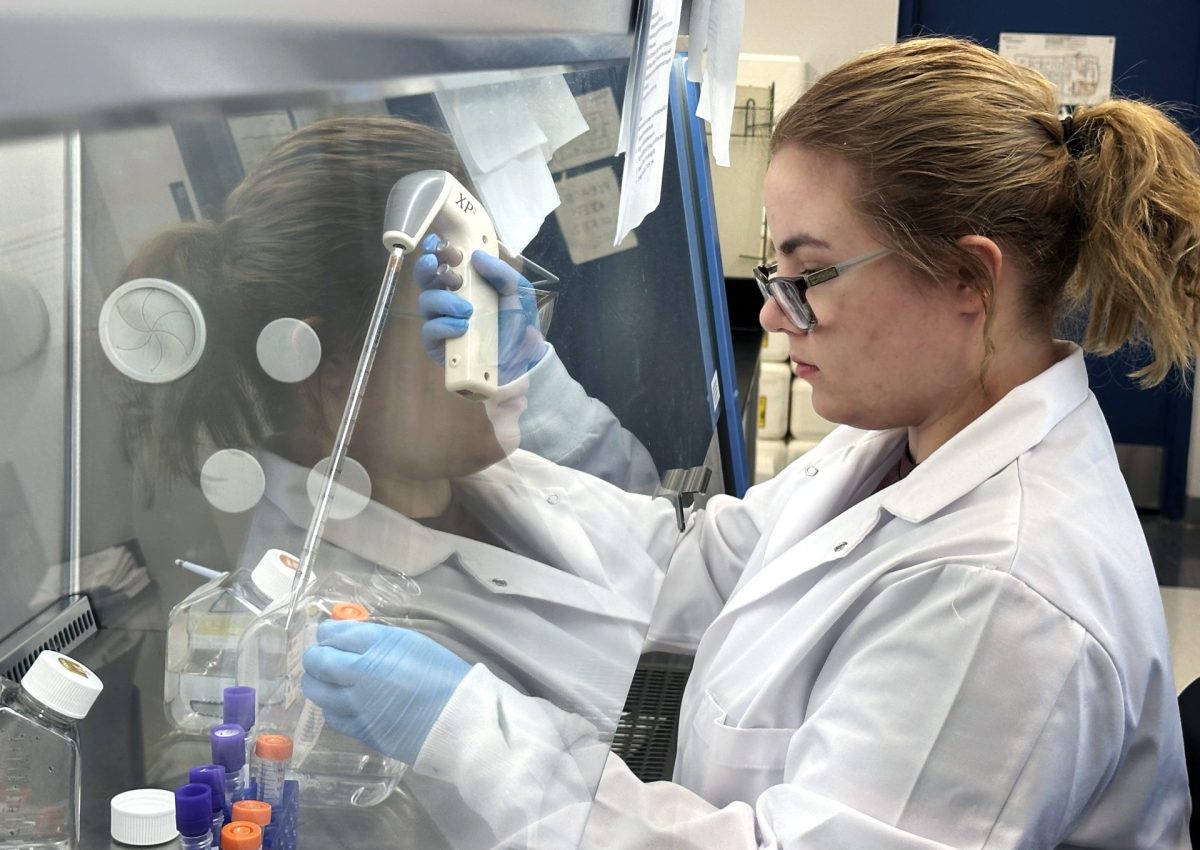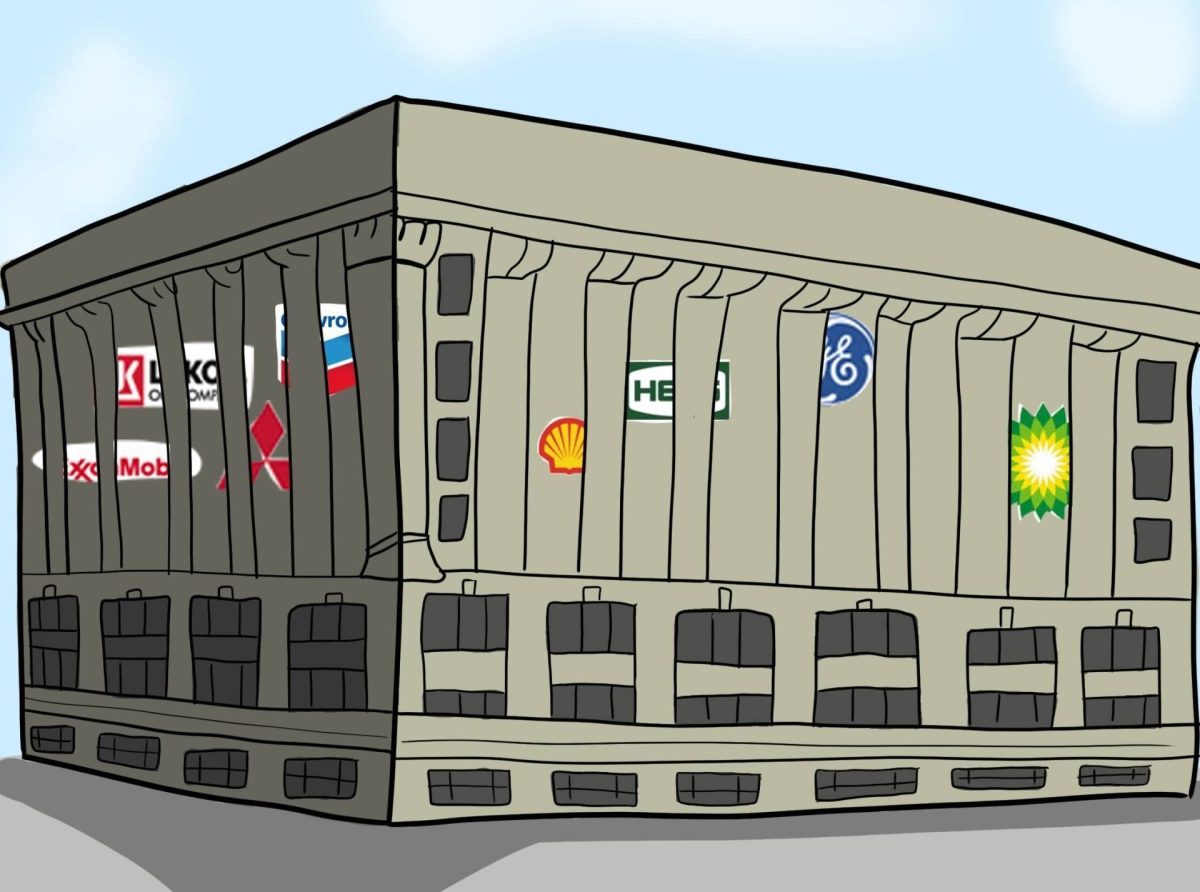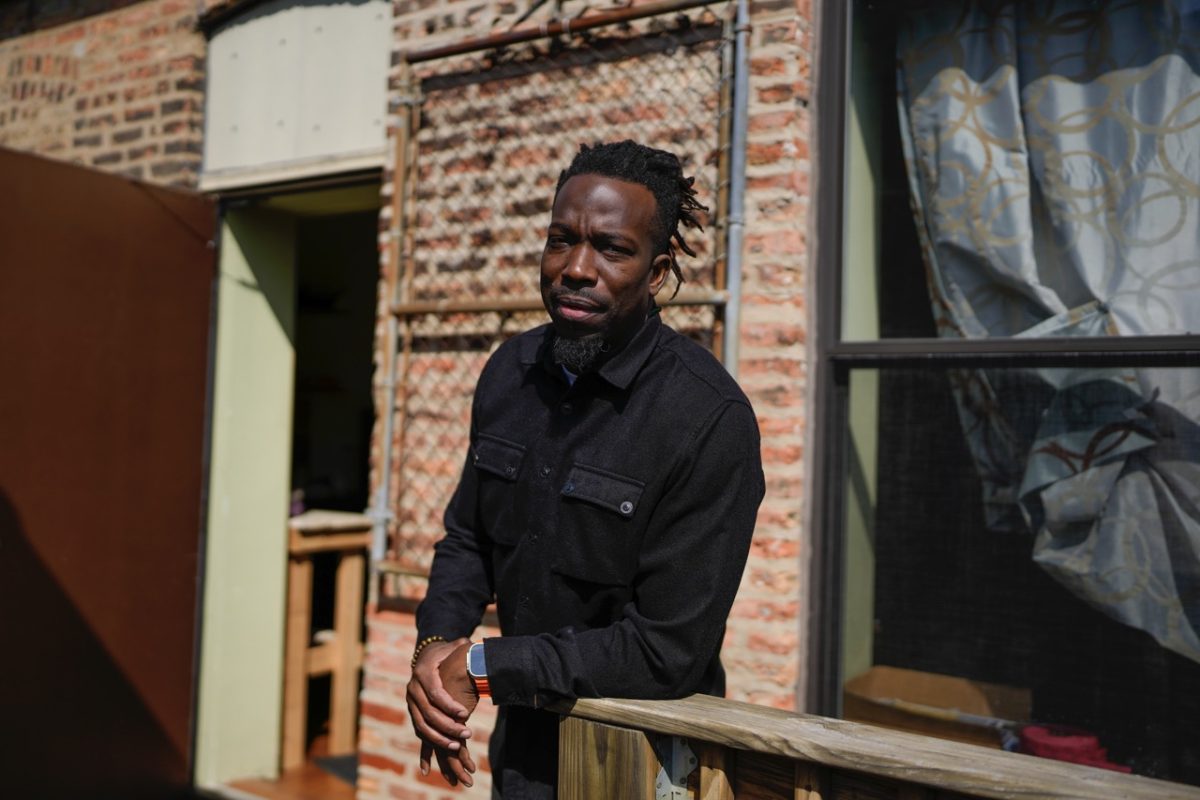ξ
DePaul’s Student Government Association (SGA) brought a group of about 40 students to the State Capitol in Springfield April 10 to lobby against the potential cut to the Monetary Award Program (MAP) Grant.
As of now, there are two budget possibilities in the Illinois legislature. One is a plan devised by Gov. Pat Quinn that would prevent further cuts to the MAP grant. The other is a to-be-specified plan that would most likely involve multiple cuts to be devised by the general assembly.
In order to persuade lawmakers to support Quinn’s budget, students went door to door to leave parcels at the office of each state legislator and senator. Each parcel contained a letter and resolution from the SGA that highlighted the long-term economic importance of preserving higher education, a letter from DePaul president Rev. Dennis H. Holtschneider, C.M., that highlighted the importance of the grant towards allowing students to attend DePaul and cards that were signed by various members of the student body that urge lawmakers to protect MAP.
Members of SGA went to Springfield with some advice, as well as their support of the MAP Grant.
“In addition to preventing continual cuts, we want to point out a few loopholes (of MAP),” said Casey Clemmons, the SGA vice president. “There were no qualifiers for incoming students. In some schools people with 0.0 GPA’s could potentially get aid. Making it merit-based could make cutoffs slightly fairer.”
The MAP Grant is a tool that has provided $317 million in need-based aid for Illinois students’ college tuition. Approximately 4,500 DePaul students are recipients of MAP aid, which amounts to about 1 in 5 students.
The state of Illinois currently faces a budget deficit of over $9.5 billion dollars and has one of the nation’s lowest credit ratings, which has led to fears that services ranging from healthcare to education to homeless programs may be cut from next year’s budget. The MAP program has already suffered from $33 million in cuts over the past few years and may suffer from further unspecified cuts.
Currently the MAP program cuts off potential recipients based on a hidden cutoff date, essentially functioning as a first-come, first-serve aid program. As cuts to MAP increase, the state shrinks the pool of recipients by moving the date earlier and earlier.
While the majority of lawmakers were on the floor to discuss upcoming budget matters during the time of lobbying, a number of DePaul students were able to discuss matters with a few of the state’s legislators face-to-face later in the day.
Rep. Kenneth Dunkin, a Democrat and chairperson of the Appropriations for Higher Education Committee, highlighted what he saw as one of the long-term benefits of preserving higher education programs.
“You all have the choice to leave the state and get your own hustle on,” said Dunkin. “However, what we want to do is tie you all in, get you to stay for three to five years. When you get MAP money, you’re also going to stay in state. I’m a big proponent of MAP in order to keep the talent you all have for at least five years.”
Indeed, one of the long-term concerns for the state of Illinois is its currently stagnant population growth, which is seventh slowest in the nation. One of the hopes of promoting higher education is that it would boost long-term growth and prevent what some refer to as a “brain drain.”
However, some legislators were less optimistic about the prospects of preserving programs such as MAP.
“As you are all well aware, we’re broke,” said Rep. Dennis Reboletti, a Republican. “I just think it’s important that you guys come down and lobby for it. I tell all groups that there were already groups earlier, and there will be more groups later today, and if you don’t come here and talk about your concerns, there are other folks who will.”
There were multitudes of other special interest groups at the State Capitol, from the Chicago Coalition for the Homeless to Illinois Action for Children, highlighting the harsh reality that charitable and nonprofit causes are competing over very limited state funds.
“What happened was, 20 years ago, the state didn’t pay parts of the pensions,” said Illinois higher education lobbyist Peter Coffey. “They don’t have a time machine to go back and make all the payments that were supposed to be paid. So each year, it’s another billion that goes to the pensions that could be going to MAP, to healthcare or to other things. So they’re going to raise taxes again, and they’re going to keep cutting programs. Its billions of dollars were behind.”
Even Dunkin, a longtime supporter of MAP, contended that it would be difficult to sway legislators.
“(MAP) is viewed as a luxury program, it’s not a mandate,” said Dunkin. “There’s never enough money, and there’s a cutoff date (for the budget.)”
SGA has been involved in the fight to preserve MAP ever since the original round of cuts in 2009.
“I can tell you SGA has been involved for a number of years,” said SGA member Kevin Doherty. “We’re here to represent our students. And in reality, this is screaming issue No. 1. It was a no-brainer to organize this.”
Recent DePaul graduate and military veteran Aline Williams also supports MAP because of how it has affected her life.
“I suffered a brain injury while in the military,” said Williams. “With medical costs – many of which weren’t covered by the military – as well as two kids, I would never have been able to come to school without (MAP).”
While there is a large possibility that MAP could suffer from further cuts, it may have an advantage over other special interests due to extensive lobbying by DePaul students and students from other schools. On the House floor, Lincoln Park Rep. Ann Williams addressed the student lobbyists, further highlighting the MAP cause as a recognized interest.
“When they see bottom-up, grassroots campaigning, it makes it much stronger,” said Clemmons. “It makes a bigger difference than suited-up lobbyists.”







